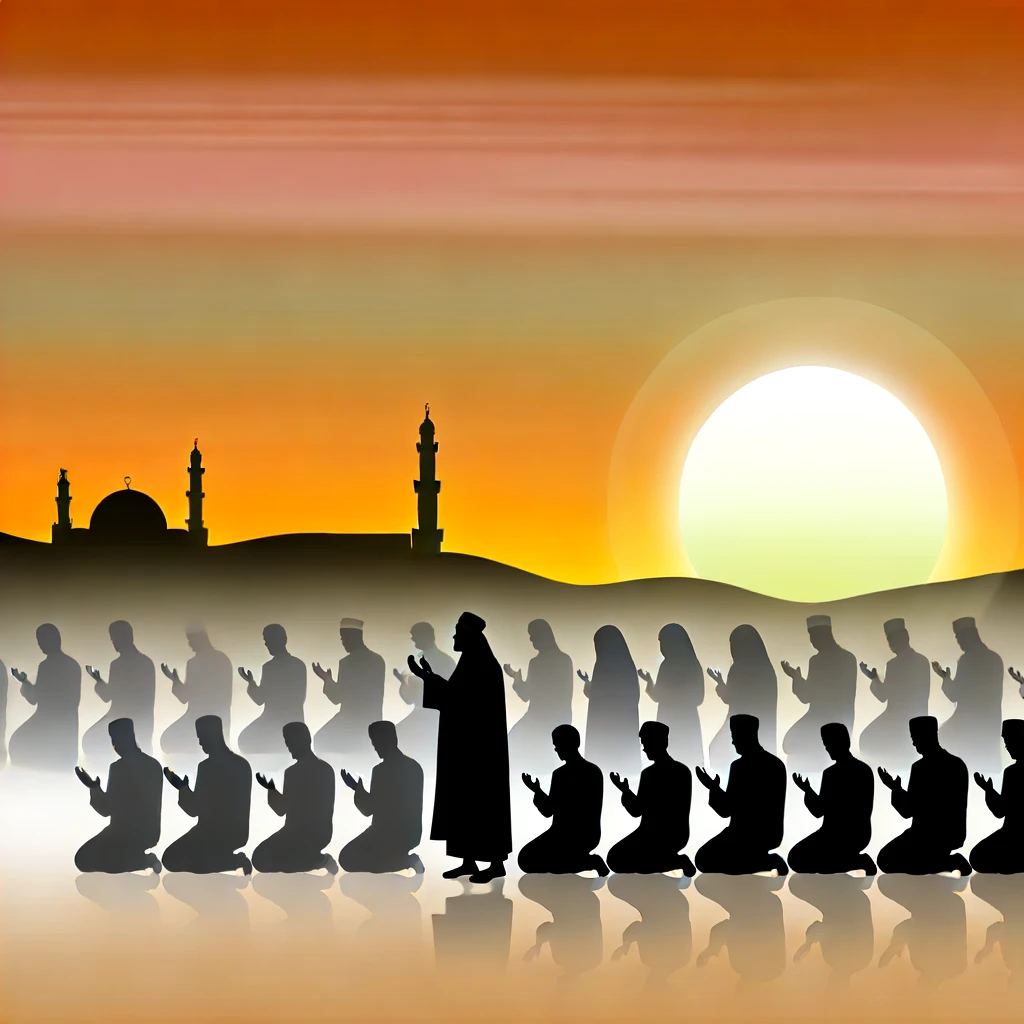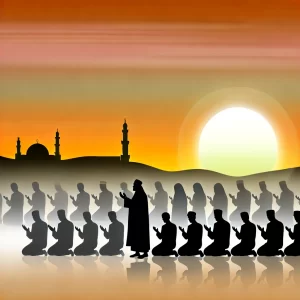The Virtues of the Days of Tashreeq and the Day of Arafah
These are days of great reverence and significance, highlighted in the traditions of the Prophet Muhammad (peace be upon him) and celebrated by Muslims globally. The Day of Arafah, in particular, stands out as a momentous day; it is a day of supplication and remembrance of Allah, marking the climax of Hajj. On this day, pilgrims stand on the plain of Arafah, praying and repenting, which underscores its importance.
The Day of Sacrifice, which follows the Day of Arafah, is marked by the slaughtering of sacrificial animals—an act that signifies obedience to Allah and commemorates the willingness of Prophet Ibrahim (Abraham) to sacrifice his son Isma’il (Ishmael) as an act of obedience to Allah, before Allah replaced Isma’il with a ram. This event is observed during Eid al-Adha, a celebration of gratitude.
The Days of Tashreeq, which are the 11th, 12th, and 13th of Dhu al-Hijjah, are named as such because they were traditionally days in which meat from the sacrificed animals was dried in the sun to preserve it. These days are filled with praise and remembrance of Allah, eating, drinking, and refraining from fasting.
Significance of Supplications and Devotions:
The best supplication is the supplication on the Day of Arafah, and the best supplication is saying:
“There is no god but Allah, alone, without partner. To Him belongs sovereignty, and to Him belongs all praise, and He is capable of all things.”
Muslims are encouraged to engage deeply in remembering Allah, seeking forgiveness, and making supplications particularly on these days. It is a time for Muslims to reflect on their faith, the greatness of Allah, and the fleeting nature of life. The practices of this period are meant to bring Muslims closer to Allah and reaffirm their commitment to the path of righteousness as outlined by the Quran and the teachings of Prophet Muhammad ﷺ.
Gathering at Arafah:
A special merit of the Day of Arafah is the gathering of the pilgrims at the plain of Arafah, where they spend the afternoon until sunset in prayer and supplication. This gathering represents a microcosm of the Day of Judgment, where people will stand equal before Allah, devoid of all distinctions of wealth, status, and class.
The Prophet Muhammad said on this day,
“There is no day on which Allah frees more people from the Fire than the Day of Arafah. He comes close and expresses His pride to the angels, saying ‘What do these people want?'”
Importance of Following the Sunnah during these Days:
It is crucial for Muslims to adhere to the Sunnah (Prophetic tradition) during these significant days. Engaging in prayers, reciting takbir (exclaiming the greatness of Allah), and making supplications are recommended practices that enhance the spiritual experience and bring Muslims closer to Allah.
Recitation of Takbir:
From the Fajr prayer of the Day of Arafah until the Asr prayer of the last Day of Tashreeq, it is Sunnah to recite the takbir aloud after every obligatory prayer. This recitation symbolizes the Islamic principle of remembrance of Allah and is meant to reinforce the spirituality of the season, reminding Muslims of Allah’s omnipotence and mercy.
Philosophy Behind Sacrifice:
The act of sacrifice on the Day of Eid al-Adha is not merely about shedding blood but is a physical manifestation of willingness to submit to Allah’s command and a way to commemorate Prophet Ibrahim’s unwavering faith. Muslims are reminded that the meat and blood of the sacrificial animal do not reach Allah; rather, it is the piety and intention behind the act that reaches Him.
Eid Prayers:
On the morning of Eid al-Adha, Muslims gather in large groups for the Eid prayer, which is followed by a sermon that often emphasises themes of sacrifice, faith, and community service. This congregational prayer is a demonstration of Muslim unity and their collective devotion to Allah.
Culmination of Hajj and its Lasting Impact:
The culmination of Hajj on these days is not only a physical end but also a spiritual beginning. Pilgrims return to their homes as renewed individuals, having sought forgiveness and committed to leading lives that uphold the values taught by Islam. The spiritual rejuvenation experienced during Hajj is intended to have a lasting impact, guiding the actions and beliefs of Muslims throughout their lives.
As we say farewell to these blessed days, let us strive to maximise our acts of worship, engage deeply in supplication, and renew our commitment to righteousness. Let this time be a reminder of Allah’s infinite mercy and an opportunity to seek His pleasure through acts of piety and devotion.
May Allah accept our worship, forgive our transgressions, and allow us to benefit from the blessings of Dhul-Hijjah.

